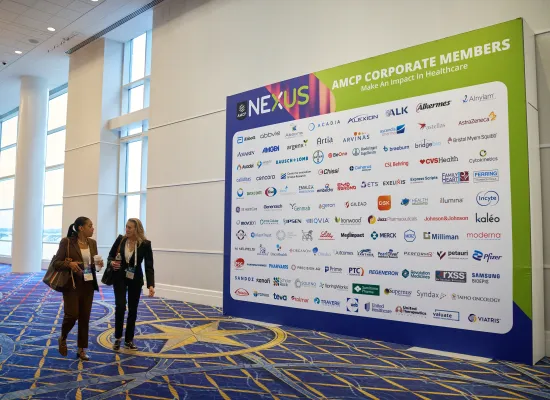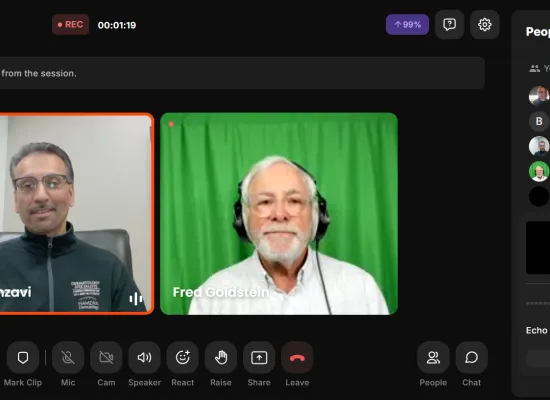
AMCP Summit on Addressing Health Disparities: Top 10 Takeaways

We were pleased to conduct our inaugural AMCP Summit: Addressing Health Disparities in June. Through the moving keynote session, expert panel discussions, and regional discussion groups we all walked away with greater knowledge on how to begin to address health disparities. To summarize the lessons learned at the summit, below are AMCP’s top 10 takeaways:
- When asked “What can managed care pharmacists do to address health disparities?” Dr. Emmanuel Mensah emphasized the importance of collecting data. He continued, “Without data, we don't know how to address the problem. We can't address what we don't see.”
- “When it comes to pain, the words we use matter,” said Dr. Mensah. “Stigmatizing language impacts the care we give to folks.”
- Kevin Wake, MS, CHW, president of the Uriel E. Owens Sickle Cell Disease Association of the Midwest provided examples of historically low funding of sickle cell disease research. In addition, in patients with sickle cell disease, stigma and racism have been shown to negatively impact access to care, treatment, psychological health, and disease outcomes. “During a pain crisis, [sickle cell disease] patients often report that they have to get fully dressed, put on makeup, and do their hair to make sure they receive the appropriate care," said Wake.
- "As you look at ways to improve population health, look at ways that patient-centered measures — that have been co-designed with patients, families, and communities — can be incorporated," said Hala Durrah, MTA.
- Durrah defines patient-centered measurement as “partnering with patients to decide what we [as health care professionals] measure, how we measure it, how we report it, and how we use those results.”
- Charlotte Owens, MD, of Takeda said, “it is important that as a path forward, we understand that communities are the experts at themselves and what they need. Through partnerships, we can effectively and sustainably reduce the inequities that communities are facing. “
- John M. Allen, PharmD, BCPS, BCCCP, FCCM, FCCP, associate dean for diversity, inclusion, & health equity and clinical associate professor at the University of Florida College of Pharmacy pointed out that income is “not the great equalizer.” While higher income is associated with higher levels of health, it's not the only factor. Instead, “education and income have the ability to influence the choices that one has to practice healthy living habits.”
- When discussing the impact of health care disparities on tribal nations, Dr. Setu Vora, Chief Medical Officer for the Mashantucket Pequot Tribal Nation, said, “tribal nations have had a lot of historical trauma to contend with and persistent, systemic discrimination, dislocation, and disenfranchisement that is still going on today.” He continued, “...that results in a heavier burden of chronic diseases that we see amongst tribal nations and certainly the type of metabolic disease including type 2 diabetes, obesity, mental health disorders resulting in substance use disorder.”
- Dr. Vora says the diseases impacting a tribe come at a huge tribal and familial cost. “When an elder passes away due to a complication of uncontrolled diabetes, a part of history and language and culture is lost with them. So, there is a tremendous human cost.”
- Candy Magaña says Humana is exploring how to incorporate pharmacoequity into their products, services, and partnerships. The term pharmacoequity was coined by Dr. Utibe R. Essien and means ensuring that individuals, regardless of race, ethnicity, and socioeconomic status, have access to the highest-quality medications required to manage their health needs.
From understanding how language impacts the type of care patients receive to incorporating patient-centered measures to improve population health, the AMCP Summit illuminated various pathways to address health disparities.
Explore all sessions on AMCP Learn today!
Featured News & Resources
See Full Calendar
Other Events
Award Applications Open
Webinars
AMCP eLearning Day: Nexus Encore
National Meetings
AMCP 2026 Registration Opens
Upcoming Events
AMCP offers a wide variety of educational opportunities, from events and webinars to online training.







